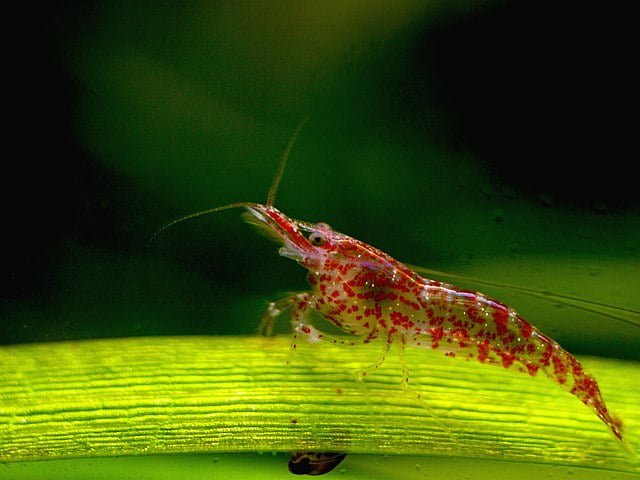
One of the key challenges in the aquaculture industry is reducing the protein content in fish and shrimp feed without compromising their growth and welfare.
Tilapia, a fast-growing and high-value commercial fish, is a key species in global aquaculture. However, its feeding poses a challenge due to the high cost of proteins. A new study published by researchers from the Universidade Federal da Bahia (Brazil) has revealed that supplementation with chromium-methionine (Cr-meth) may be the key to optimizing tilapia nutrition, reducing costs, and improving their health.
The Challenge of Protein Diets
High-protein diets are essential for the optimal growth of tilapia and other aquaculture species. However, it represents a significant portion of fish farmers’ budgets. Additionally, the excessive release of nitrogenous compounds derived from protein diets negatively impacts the aquatic environment.
Researchers and aquaculturists are seeking alternatives to reduce the protein content of feeds without compromising the health and productivity of the fish. One of the most promising strategies is the supplementation with trace minerals, such as chromium.
The Study: Cr-Meth and Tilapia
Chromium is an essential micronutrient that plays a crucial role in glucose metabolism. When combined with methionine in the form of a chelate, its bioavailability increases significantly. Previous studies have demonstrated the benefits of Cr-meth in other aquaculture species, such as improvements in growth, feed efficiency, and immune response.
Researchers from the Universidade Federal da Bahia evaluated the effects of incorporating Cr-meth in low-protein diets for juvenile Nile tilapia. The aim was to analyze its impact on growth, body composition, nutrient retention, and hematobiochemical parameters.
They compared two control diets (without Cr-meth), one with high protein content (positive) and one with low protein content (negative), with five experimental diets containing different levels of Cr-meth. The tilapia were fed to satiation for 9 weeks.
Promising Results
The results showed that the inclusion of 0.8 and 1.0 mg of Cr-meth per kilogram of diet achieved similar results to the positive control in terms of growth and other zootechnical parameters. Additionally, a reduction in feeding costs was observed due to the decrease in protein content.
Another important finding was the positive impact of Cr-meth on body composition. Fish fed with 0.6 mg/kg showed higher levels of gross energy and energy retention, as well as better plasma cholesterol and triglyceride values.
Stay Always Informed
Join our communities to instantly receive the most important news, reports, and analysis from the aquaculture industry.
Regarding immunity, a strengthening of the immune system was detected in fish that received Cr-meth, manifested in an increase in leukocytes and monocytes.
Implications for Tilapia Feeding
The results of this research have the potential to revolutionize tilapia aquaculture. The confirmation that Cr-methionine can improve carbohydrate metabolism and generate a protein-sparing effect opens up new possibilities for developing more sustainable and cost-effective diets.
Thus, the findings of the study would have far-reaching implications. It could lead to a significant reduction in tilapia production costs, increasing the industry’s competitiveness. Additionally, it would help mitigate the environmental impacts associated with aquaculture by reducing nutrient loading in the water.
Conclusion
“Our findings showed that for Nile tilapia, the higher levels of Cr-meth (0.8 and 1.0 mg/kg) can be used in low-protein diets (considering a reduction from 311 to 255 g/kg),” the researchers concluded.
In this sense, the study’s results suggest that supplementation with 0.8 mg of Cr-meth per kilogram of diet is an effective strategy to reduce the protein content in tilapia feed without negatively affecting their performance.
This innovation has the potential to make a significant impact on tilapia aquaculture, offering a more sustainable and cost-effective option for producers. Moreover, the benefits in terms of fish health and welfare are evident.
The study was funded by Zinpro Corporation and FAPESB (Fundação de Amparo à Pesquisa do Estado da Bahia).
Contact
Luiz Vitor Oliveira Vidal
Programa de Pós-Graduação Em Zootecnia, Escola de Medicina Veterinária E Zootecnia, Universidade Federal da Bahia
Av. Milton Santos, Ondina, Salvador, BA, 50040170-110, Brazil
Email: vidal@ufba.br
Reference
de Oliveira, C.P.B., Copatti, C.E., da Paixão Lemos, C.H. et al. Chromium-methionine chelate can reduce protein content in Nile tilapia diets: an analysis of growth, carcass, biochemical and hematological parameters, and economic return. Aquacult Int (2024). https://doi.org/10.1007/s10499-024-01636-8
Editor at the digital magazine AquaHoy. He holds a degree in Aquaculture Biology from the National University of Santa (UNS) and a Master’s degree in Science and Innovation Management from the Polytechnic University of Valencia, with postgraduate diplomas in Business Innovation and Innovation Management. He possesses extensive experience in the aquaculture and fisheries sector, having led the Fisheries Innovation Unit of the National Program for Innovation in Fisheries and Aquaculture (PNIPA). He has served as a senior consultant in technology watch, an innovation project formulator and advisor, and a lecturer at UNS. He is a member of the Peruvian College of Biologists and was recognized by the World Aquaculture Society (WAS) in 2016 for his contribution to aquaculture.







